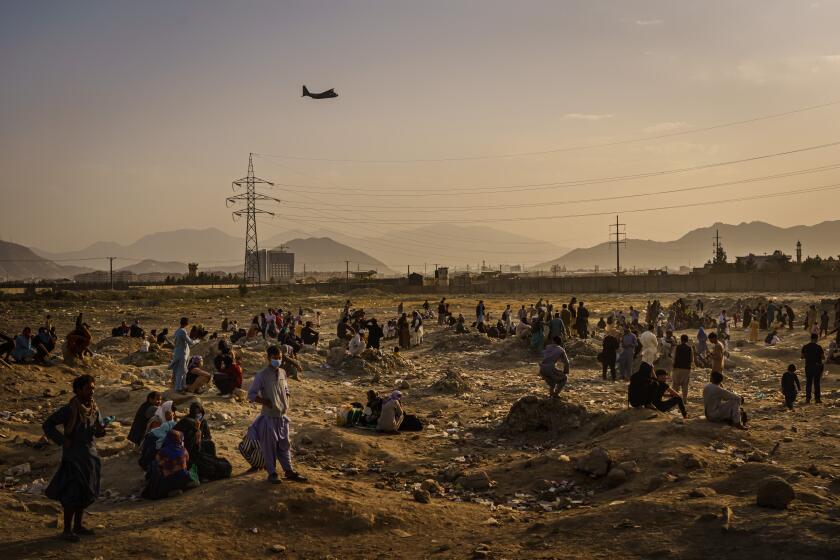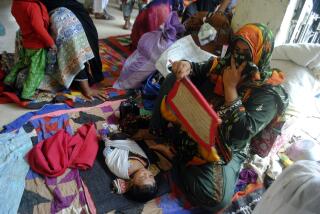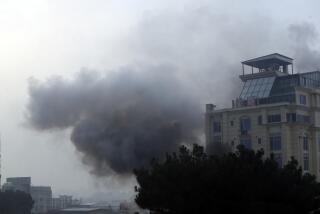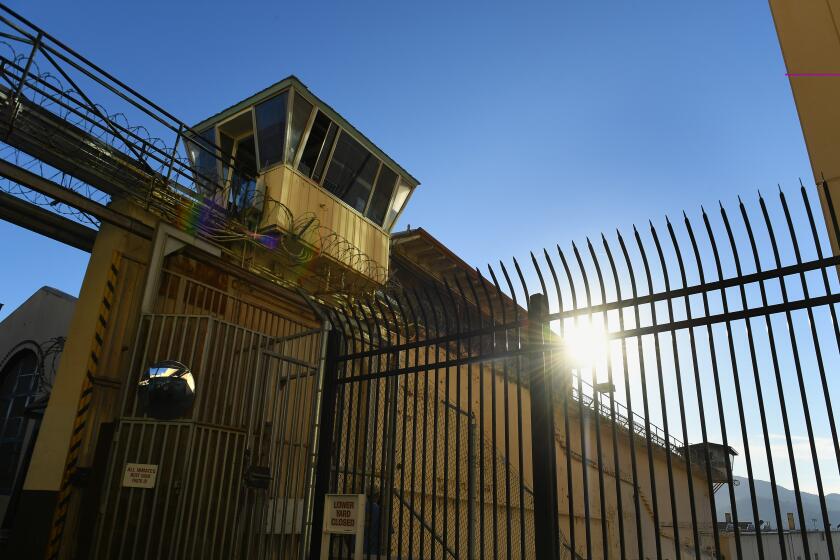Op-Ed: Iâm a refugee from Vietnam. The images out of Afghanistan fill me with horror â and hope
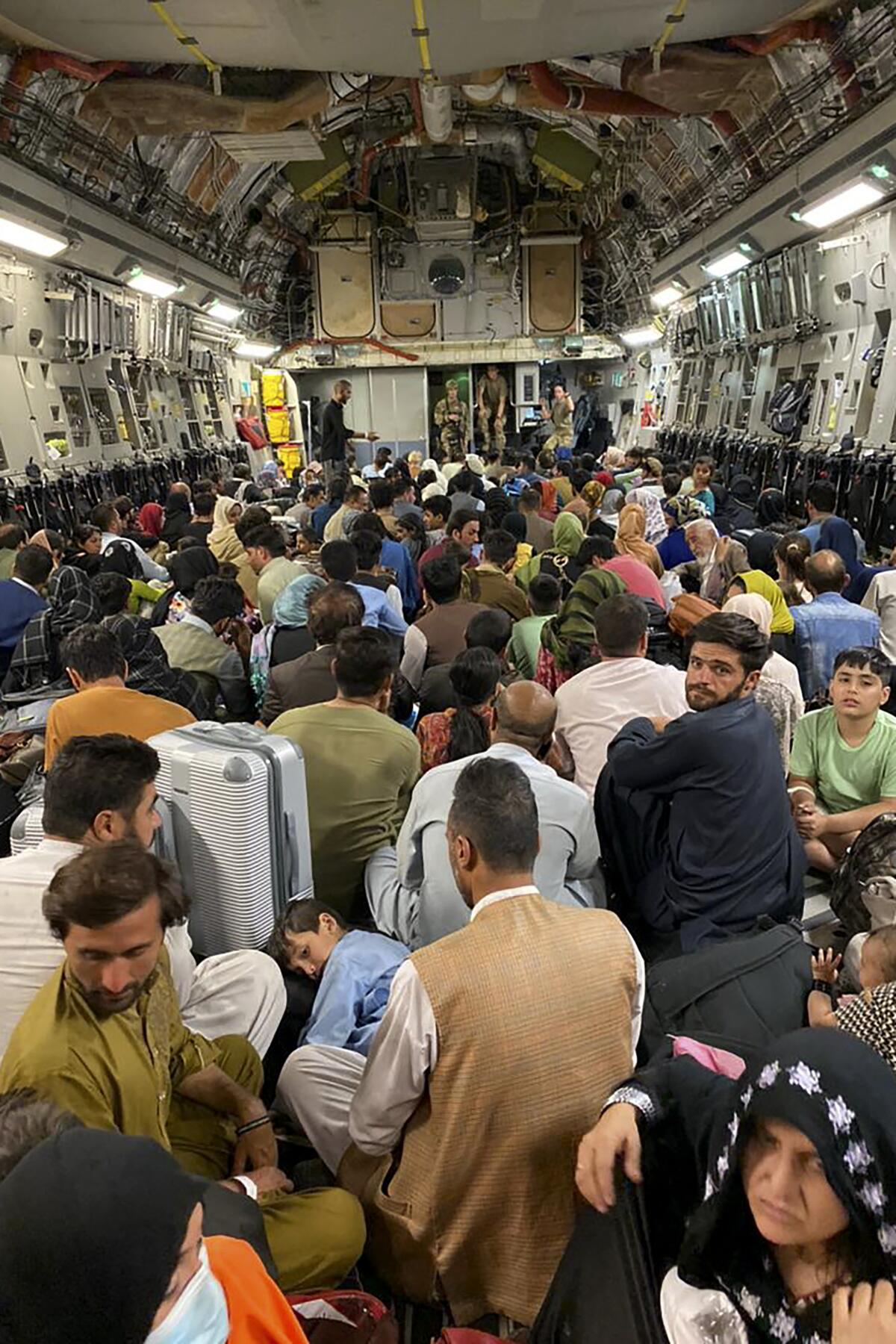
Watching the news from Afghanistan, I couldnât help but feel a sense of dĂŠjĂ vu. There they were on my TV screen: ordinary people who just days before had been going about their lives, now frantically crowding the Kabul airport, trying to flee.
Forty-six years ago, in April of 1975, I was among the hundreds of thousands of South Vietnamese citizens desperately trying to escape Saigon, the city that had been my home since childhood.
I was particularly vulnerable. Five years earlier, Iâd had the fortune to win a U.S. Agency for International Development scholarship to attend college in the United States. While the war escalated back home, I started college at Oregonâs Pacific University and finished earning my bachelorâs degree in business at UC Berkeley, in 1974.
Many of my American friends and professors urged me to stay in the U.S. or flee to Canada rather than return to my war-torn country. Instead, I honored the commitment I had made to return to Vietnam. I landed an executive-track position with a large international oil company, hoping to use all I had learned in America to help rebuild my country.
Instead, I found myself in a precarious situation. Within months of my arrival, the North Vietnamese had gained the upper hand militarily and U.S. troops were pulling out. Instead of enjoying my new career, I had one preoccupation: trying to escape to save my life.
This weekâs images from Kabul brought me back to the day my father, acting on a tip, took one of my sisters, who was then about 17, on his motorcycle to get her to a departing boat, not knowing where it was headed. (Years later we would learn that, thanks to friends of mine, she had made it safely to Oregon.)
As international airlifts from Afghanistan accelerate, the airport backdrop is rife with desperation. Only the lucky are able to flee.
Amidst the confusion, friends in San Francisco alerted me by telegram that theyâd sent evacuation papers for me to the U.S. embassy. But when I tried to obtain them, I found myself just one of thousands in the throngs trying to penetrate the fenced-in compound, with no hope of getting in.
And the vivid pictures from the Kabul airfield transported me to April 29, 1975 â one of the worst days of my life. That morning, along with two of my brothers, I managed to board an American evacuation bus in central Saigon bound for the airport and, I hoped, our best chance for freedom.
My heart raced as the driver steered through familiar streets. But then he suddenly received a call on his radio, seemingly in code, and abruptly hit the brakes.
âWhat happened?â I asked.
âThe airport is under rocket attack,â he said, heading back toward the city center.
I knew at that moment that all was lost.
Burning possessions to hide U.S. ties
That evening, as my parents and siblings listened on the radio to the increasingly bleak news, I hauled a box of my possessions behind the house. I lighted my motherâs kerosene stove and burned every shred of evidence of my U.S. ties: my address book listing hundreds of American friends and teachers, my college transcripts, a small American flag a classmate had given me.
I thought of that moment as I read reports of the tens of thousands of Afghans who had worked as interpreters or provided support for the U.S. military and diplomatic corps. Fearing reprisal from the Taliban, many of them are destroying anything that would reveal their connection to the U.S.
For me, that April night was only the beginning of a nightmare that would last more than four years and result in multiple failed escapes, including one that cost my father his life. Finally, in 1979, a connection my mother made led to one last chance to get away â aboard a small fishing boat with some 350 others.
After barely surviving the passage across the Gulf of Thailand, I made it to a refugee camp in Malaysia. Four months later, I boarded a flight for the U.S.
Landlocked Afghanistan offers few options for escape. That makes it all the more important for the U.S. to make every effort to help these people evacuate while thereâs still time. On Tuesday, the Taliban said it would begin blocking Afghans trying to leave the country from accessing Kabulâs airport.
The U.S. has evacuated more than 28,000 people from Afghanistan since Aug. 14, and will continue to do so until President Bidenâs Aug. 31 deadline to withdraw all American troops from the country.
Still, the situation remains tenuous. I know all too well the strain and heartbreak that goes with trying to become a refugee.
Fortunately, I also know there is hope â if our government continues to act quickly and with resolve.
I am forever grateful to President Ford, who less than a month after Saigonâs fall signed a law admitting some 130,000 refugees from Southeast Asia to the U.S., opening the gates for years to follow. That allowed my wife and me to come to America, where I started as a junior accountant and rose to chief financial officer of a large company, taught business college courses â and make a point of contributing to my community.
My story is proof that refugees fleeing strife in their homelands can come to America and build better lives â if they are willing to work hard, learn and give back. But itâs up to our leaders and all of us to give them a chance.
Tim Tran is a retired business executive and college instructor. He wrote, with Tom Fields-Meyer, the memoir âAmerican Dreamer: How I Escaped Communist Vietnam and Built a Successful Life in America.â
More to Read
A cure for the common opinion
Get thought-provoking perspectives with our weekly newsletter.
You may occasionally receive promotional content from the Los Angeles Times.
